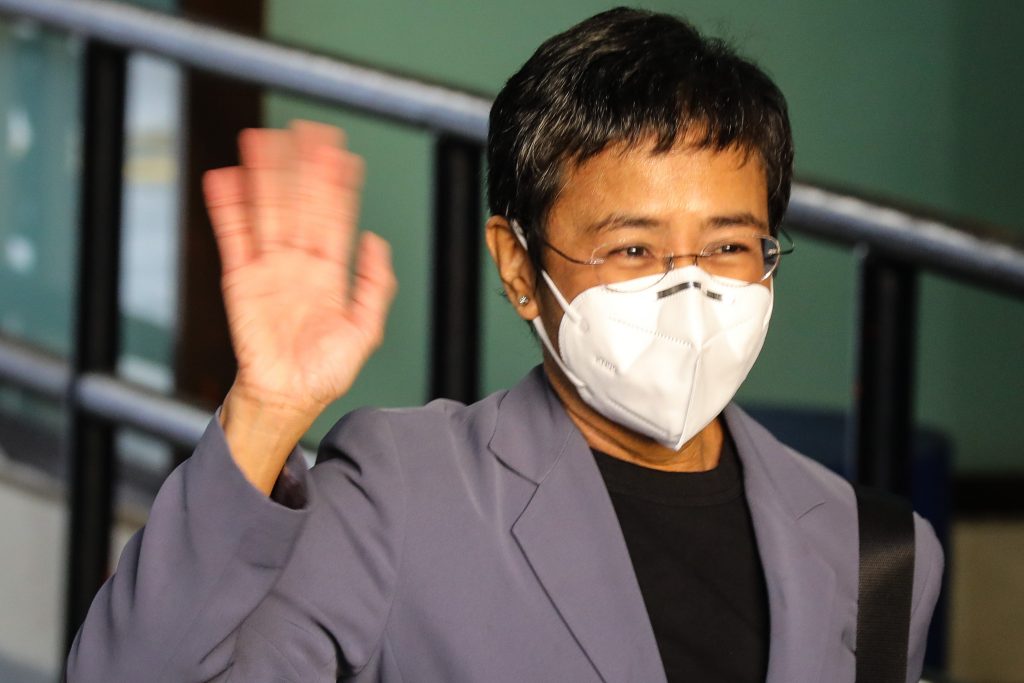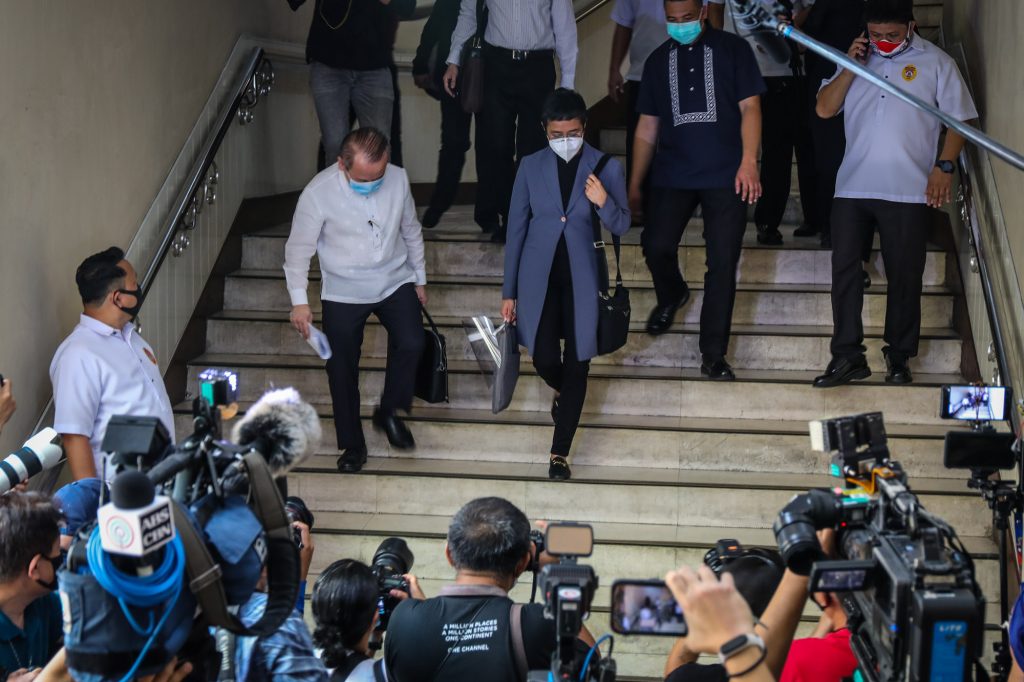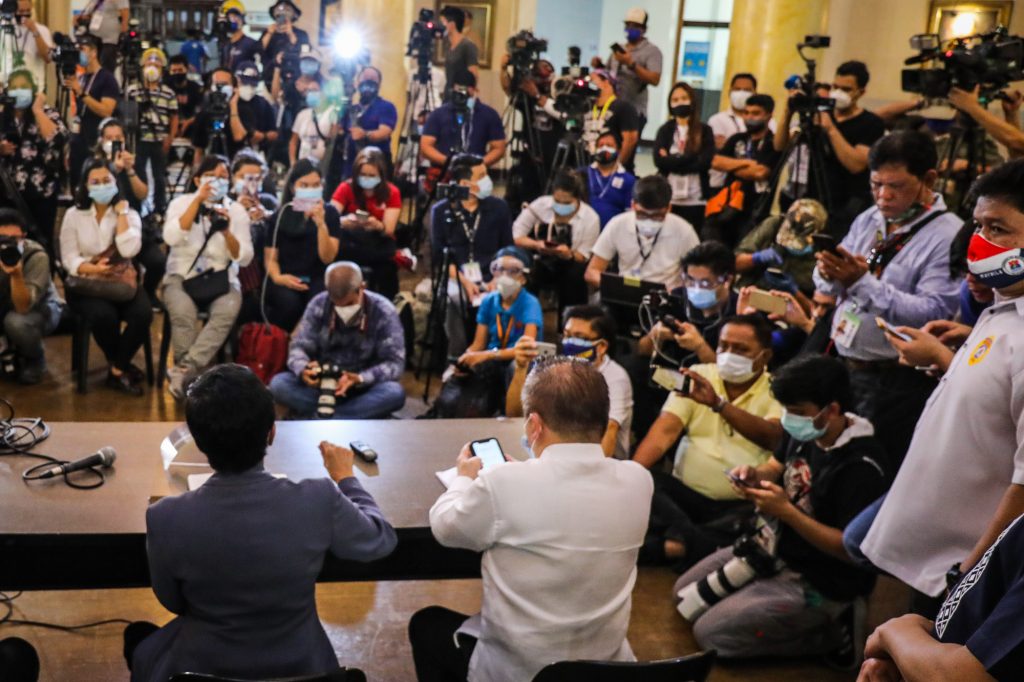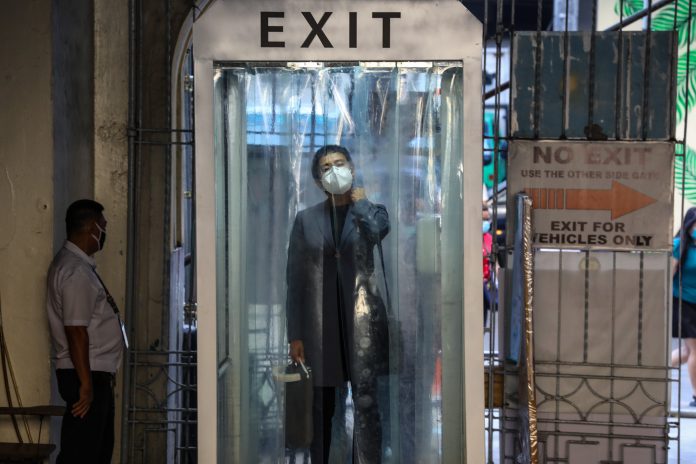CHURCH leaders, media, and human rights groups decried the conviction on June 15, of two Filipino journalists of cyber libel in a trial seen by many as a test case for press freedom in the Philippines.
Maria Ressa, executive editor of online publication Rappler, and researcher-writer Reynaldo Santos were convicted of cyber libel over a complaint filed by a businessman for a story written in 2012.
The court ruled that Ressa and Santos are guilty of cyber libel charges and sentenced both to six months and one day to up to six years in jail.
In a May 2012 article on the late former chief justice Renato Corona’s links to businessmen, Rappler quoted an “intelligence report” linking businessman Wilfredo Keng to drugs and human trafficking.
Keng filed the complaint in 2017, or five years later, beyond the more typical one-year prescription period for libel under the Revised Penal Code.
“I believe that Ressa is a victim of political harassment,” said Bishop Jose Colin Bagaforo of Kidapawan diocese in the southern Philippines.
The prelate said “there is a high probability” that the cases filed against the lady journalist “are fabricated to silence her in her disagreements” with the administration of President Rodrigo Duterte.
The cyber libel case is just one of the many legal charges against Ressa and Rappler, whose publication extensively covered the Duterte administration’s “war” against illegal drugs.

Government figures indicate that at least 8,663 people have been killed in the crackdown against illegal drugs in the country, but human rights groups put the toll at triple the number.
Father Edwin Gariguez, executive secretary of the social action arm of the Catholic bishops’ conference, said the cyber libel conviction of Ressa is “a brazen assault on the freedom of the press.”
“This is a very sad day for our country’s press freedom, which is an essential component of a functional democracy in any country,” said Bishop Pablo Virgilio David of Kalookan.
“This is ridiculous! The conviction of Maria Ressa is a clear sign of the emerging dictatorship of the Duterte Regime,” said Bishop Arturo Bastes, retired prelate of Sorsogon.
Benedictine nun Mary John Mananzan, a vocal critic of the Duterte administration, said she is saddened by the verdict.
“It is a blow to press freedom and responsible journalism,” she said. “I hope it will be overturned in the higher courts,” added the nun.
Blow to press freedom
Human Rights Watch said the conviction of Ressa is “a devastating blow to media freedom in the Philippines.”
Phil Robertson, deputy Asia director at Human Rights Watch, said the verdict highlights the ability of Duterte “to manipulate the laws to go after critical, well-respected media voices.”
“The Rappler case will reverberate not just in the Philippines, but in many countries that long considered the country a robust environment for media freedom,” said Robertson.
He said the campaign against Rappler “occurs in the context of worsening media freedom and freedom of expression in the Philippines.”
“The prosecution was not just an attack on these individual journalists, but also a frontal assault on freedom of the press which is critical to protect and preserve Philippines democracy,” said Robertson.

Luis Teodoro, national chairman of AlterMidya, said the legal cases and accusations against Rappler and other media organizations “is clearly a part of the administration’s attack against the media.”
The journalism professor said the Duterte administration is “determined” in instilling fear among media practitioners committed to reporting the truth and holding the administration into account.
“The Philippine media, both in the alternative and dominant, has faced a systematic assault under the Duterte administration,” said Teodoro.
“This guilty verdict on Rappler’s case is another blow to press freedom and free expression in the country,” he said.
Government spokesman Harry Roque defended the president, saying the administration was not behind attempts to suppress press freedom in the country.
“[The] president is not behind the alleged attacks on freedom of expression and the press …. The president supports the freedom of expression and freedom of the press,” said Roque.
“The president believes in the freedom of expression and he asserts that government officials should not be onion-skinned. They should face criticism from the public, especially if it comes from media,” he added.

Lawyer Melissa Andaya, counsel of complainant, businessman Wilfredo Keng, said the conviction of Ressa “isn’t about press freedom, but accountability.”
In a statement, Keng said he filed the case in a bid “to protect my name, and my sacrifice for my children and our future generations.”
He said the conviction of Ressa “vindicated” him “to the extent possible considering that the damage had already been done.”
The businessman said the case “is not a fight against press freedom.”
“My filing and winning this case assures Filipinos that published falsehoods will not remain unchallenged and unchecked in this jurisdiction but will instead be dealt with by law, strengthening the people’s respect for the Philippine media in the years to come,” he said.
Mark Saludes and Marielle Lucenio contributed to this report.









